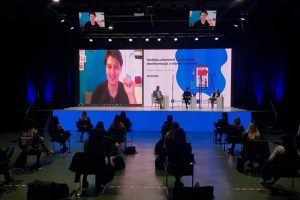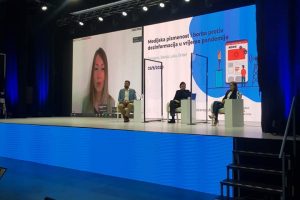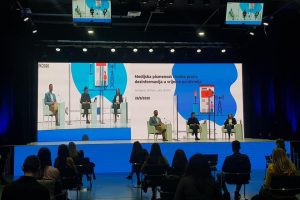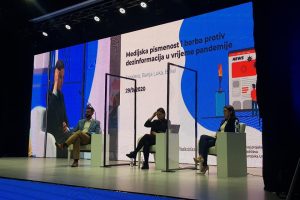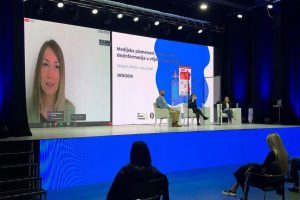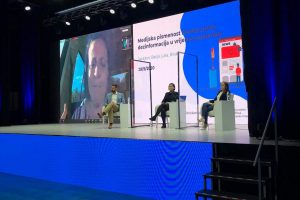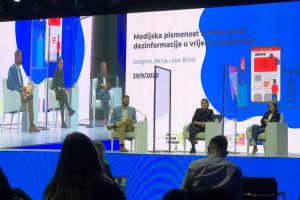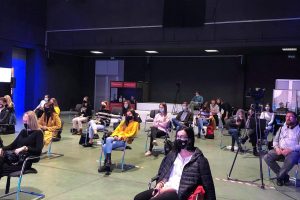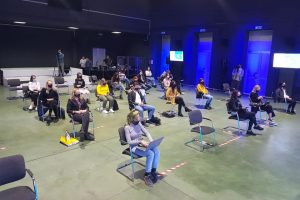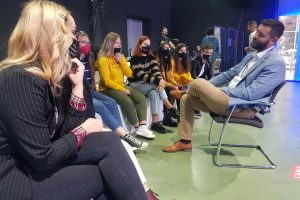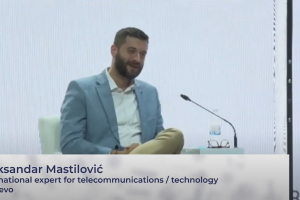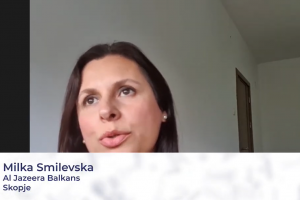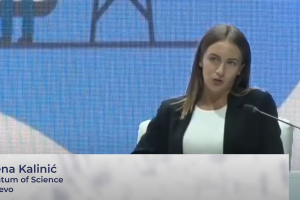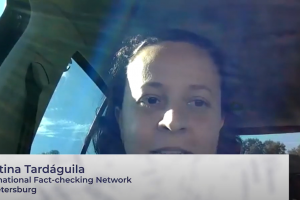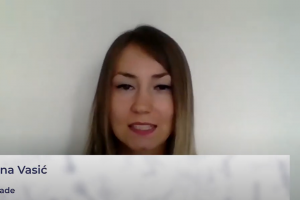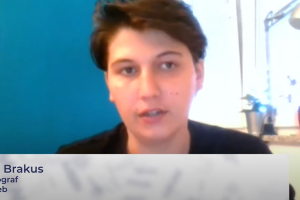Nine waves of the pandemic-related disinformation
More science literacy is one of the “cures” for spreading misinformation, and the tools for reaching that goal are science literacy projects, combined with fact-checking projects as the “antidote” for misinformation, the second panel of the “Media literacy and the fight against disinformation in the time of the pandemic” was told.
The conference was jointly organised by the Association “Why Not” (Zašto ne) on behalf of See Check network, Association of High School Students in BiH and the European Union, within the “Ne klikam u prazno” project funded by the EU with the aim of strengthening media literacy among youth. As part of the conference, three panel discussions were hosted from three cities (Brussels, Sarajevo and Banja Luka) on the subjects of media literacy, fact-checking and disinformation, with a focus on the pandemic in this sphere.
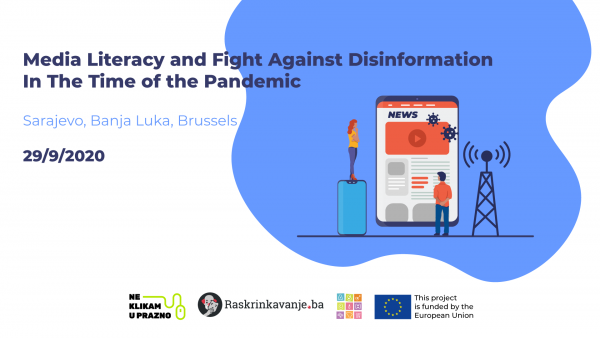 The panel, held in Sarajevo, was moderated by Tijana Cvjetićanin from Association “Zašto ne”. Participants in the panel were guests in the Sarajevo studio – science journalist Jelena Kalinić and telecommunications expert Aleksandar Mastilović. Other participants joined via video link – Cristina Targuila from IFCN, an international network of fact-checking organizations; Jelena Vlasić, journalist of Raskrikavanje (Serbia); Ana Brakus, journalist of Faktograf (Croatia); and Milka Smilevska, journalist of Al Jazeera Balkans network.
The panel, held in Sarajevo, was moderated by Tijana Cvjetićanin from Association “Zašto ne”. Participants in the panel were guests in the Sarajevo studio – science journalist Jelena Kalinić and telecommunications expert Aleksandar Mastilović. Other participants joined via video link – Cristina Targuila from IFCN, an international network of fact-checking organizations; Jelena Vlasić, journalist of Raskrikavanje (Serbia); Ana Brakus, journalist of Faktograf (Croatia); and Milka Smilevska, journalist of Al Jazeera Balkans network.
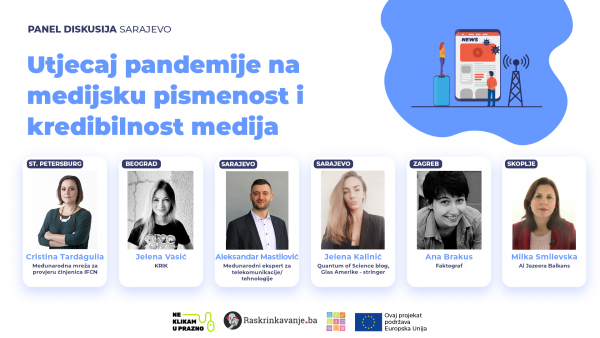
Jelena Kalinić pointed out that the antivaccine movement is the forerunner of all other sources of disinformation in the region. “That movement is at the core of all anti-science movements,” she said and added that the societies in the Western Balkans region are fragile democracies in which a lack of trust in the institutions helps the spread of misinformation.
“Increasing science literacy is one of the ‘cures’, but that doesn’t happen in half a year. Science literacy projects should be financed, as well as fact-checking projects as the ‘antidote’ for misinformation,” said Kalinić.
Cristina Tardguila provided an overview of the nine waves of disinformation that was spread since the beginning of the COVID-19 pandemic to date. According to her, 99 organizations from at least 77 countries debunked more than 9,000 pieces of disinformation during the pandemic, in some 40 languages.
“Langue is no longer a barrier. Same disinformation travels the world fast,” she said.
Jelena Vasić gave insight on the regional network of seven fact-checking organizations, SEE Check. Although the network was established before the pandemic, the true significance of such cooperation was acknowledged during the initial waves of disinformation at the time of the pandemic.
Identical disinformative narratives intertwine in the countries of the region, since the language differences are minor, hence it is important to have local fact-checkers who have access to sources and understand the situation on the spot better. This helps debunking the same narratives which spread in other countries.
Ana Brakus noticed that there is a lack of quality and accurate information, and that people seek information from official sources – the institutions – that they don’t trust particularly. She also spoke of the partnership that her organization has with Facebook. The partnership was recently extended to other fact-checking organizations in the region.
The good side of that partnership, she said, is the fact that the fact-checkers have direct contact with Facebook users who share misinformation, as well as a growth in reach of content that gets published.In flip side there are threats and abuse that the fact-checkers are subjected to by the users whose content is flagged as disinformation on that social network.
Brakus also spoke about another problem – the reluctance of experts to engage in arguments with persons who use their academic authority to spread anti-scientific narratives, especially during the pandemic. Fact-checkers find themselves in need for such sources, in order to tackle the tide of disinformation more successfully.
Watch the video of the session on the following link:
